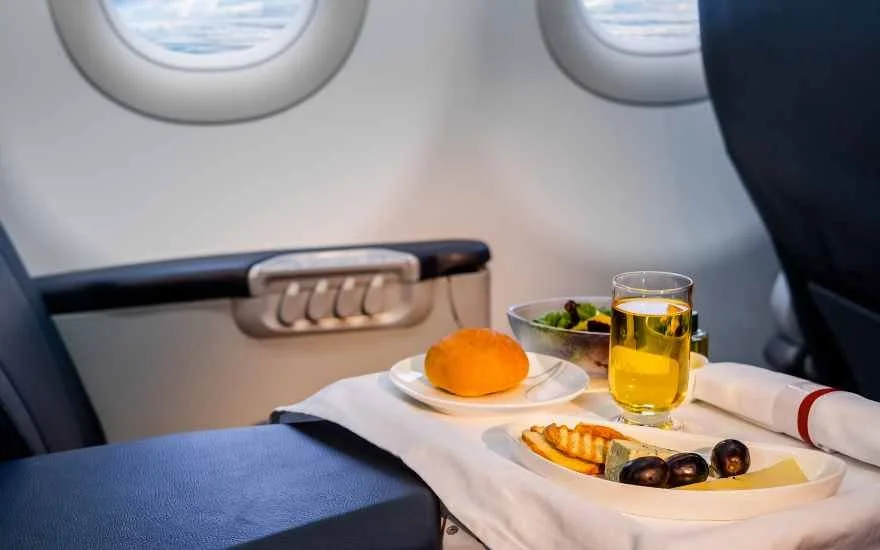It is difficult to pinpoint the exact moment a holiday starts, but sipping on an in-flight drink whilst cruising above the clouds is a guaranteed way of getting into the mindset. But have you ever noticed any differences in how your favourite drinks taste at 35,000 feet?
Well, you’re not imagining it. The altitude lessens the ability of our senses to detect complexities in flavour, and the pressurised, dry air subdues taste buds, dries out the nose and de-intensifies aroma. It is easy to forget just how much our taste relies on our small, and in the cabin, you may well notice that your favourite aromatic wine on terra firma is unusually shy in the cabin. Did you know that even the loud engines compromise taste, for example!? So, bearing that in mind, how do we drinkers adapt to these conditions and avoid disappointment when the drinks cart comes around?
The key is to opt for bolder, fuller, and more intense flavours, whilst avoiding subtle, more nuances and fragrant drinks. Particularly when it comes to premium aged liquids like older whiskies and wines, the full sensory experience involved in enjoying these is best left till your feet are back on the ground!
When deciding in-flight white wine, you’ll get more out of powerful whites like Chardonnay, Rhone blends, and Viognier-based bottles. For reds, look out for punchy Cabernet Sauvignon, Malbec, and Syrah.
Tomato juice is sold in surprisingly huge quantities by airlines, nearly as much as beer in the case of Lufthansa. Research shows that this umami flavour profile may not only avoid the compromise of other tastes, but actually may be enhanced! So, if a Bloody Mary is an option or perhaps savoury gins, then these may taste even better than usual.
One semi-myth of in-flight boozing is that you get drunk quicker. Some say that the pressure change thins the blood, strengthening the effects of any alcohol consumed. What’s more likely however is that the lack of oxygen, dehydration, fairly empty stomach (airports are expensive and plane food’s reputation isn’t the best), limited movement and vacation excitement contributes towards an intoxicated feeling – so there’s some truth to it we suppose. One thing to note; carbonated booze is very popular on flights, and these are absorbed by the body at a faster rate, so if you want to avoid any tipsiness until you reach your destination, maybe steer clear of these.

